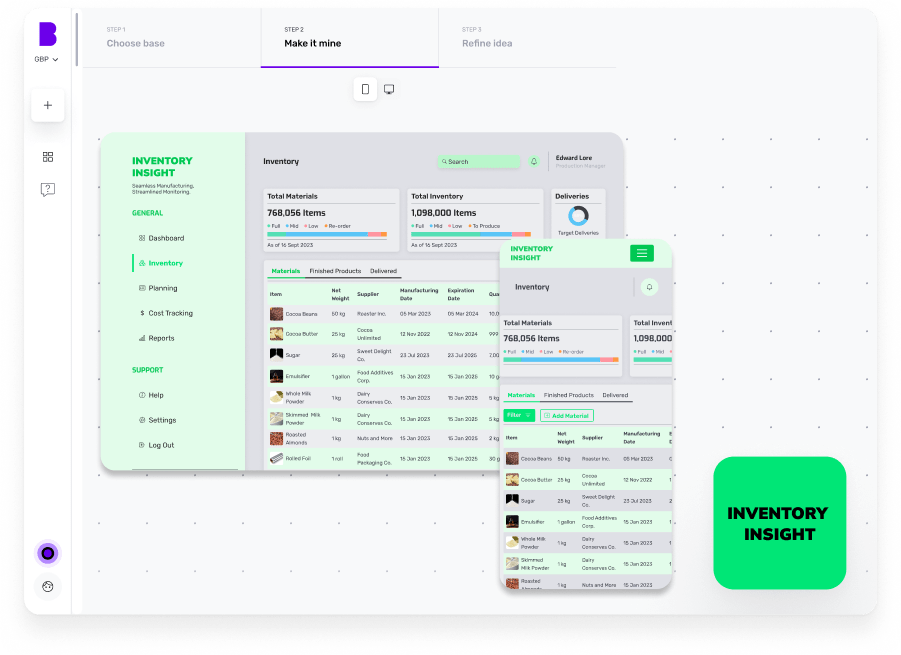In the cut-throat world of modern commerce, loyalty is in short supply. Most businesses today are grappling with the challenges of customer retention and engagement and the stagnant growth that results. That’s because traditional marketing strategies often fall short in securing a dedicated and loyal customer base.
But it’s not goodbye and au revoirjust yet. Enter app rewards and loyalty programs — a game-changer in the world of customer engagement. These programs incentivise repeat business by offering rewards, discounts and exclusive perks to loyal customers.
And did you know that customers who are part of loyalty programs tend to generate 15–25% more revenue? Additionally, about 60% of consumers also reported having a stronger emotional connection with brands that offer loyalty programs.
Therefore, these programs not only drive sales but also cultivate a loyal customer base that's more likely to advocate for the brand.
So, in this blog, we'll learn about how customer loyalty program software works. Plus, we'll also explore how these reward programs work, along with the challenges and potential solutions that businesses might face when implementing such programs.
And I promise that by the end of this blog you'll have a comprehensive understanding of how app rewards and loyalty programs can transform your business and drive growth.
How does a customer loyalty program work?
Here's a simplified breakdown of how a customer loyalty program works. 👇
Customer registration and onboarding
Customers sign up for the loyalty program through a user-friendly interface, typically on the company's website or mobile app. Here, customers create a profile where they provide basic information such as their name, email and preferences.
Loyalty program setup
Then, the business sets up the loyalty program rules within the software. This could include the type of rewards (like points, discounts or free products) and the actions that earn rewards (like purchases, referrals or reviews).
Points and rewards system
Customers earn points for various actions such as making purchases, referring friends, writing reviews or engaging with the brand on social media. The software often includes different tiers or levels of rewards, with higher tiers offering more benefits and perks.
Rewards tracking
Now, every time your customer makes a qualifying action, the software tracks it and updates their rewards balance in real-time. This makes sure that customers always have an accurate view of their rewards.
Rewards redemption
Next, when your customer has enough rewards to redeem, the software facilitates this process. It could be as simple as applying a discount at checkout or redeeming points for a specific product.
Communication and customer engagement
The software then engages customers through personalised communications. This could include emails or push notifications that inform them about their rewards status, special offers or upcoming events.
Analytics and reporting
The software also provides analytics and reporting features to help your businesses understand how their loyalty program is performing. This can include metrics like customer retention rate, rewards redemption rate and calculated return on investment (ROI).
Continuous improvement
Based on analytics and customer feedback, your business can adjust their loyalty program to improve its effectiveness. The software allows for these changes to be implemented seamlessly.
Challenges of implementing loyalty programs
Addressing these challenges of implementing loyalty programs with strategic solutions, can drive customer retention and long-term growth.
Technological integration
❎Challenge - integrating loyalty program software with existing systems like CRM software and or ecommerce platforms can be technically challenging.
✅Solution - you can ensure that you choose composable software development platforms that can easily scale with growing business requirements.
Customer engagement
❎Challenge -keeping customers engaged and interested in the loyalty program is a continuous challenge.
✅Solution - use gamification techniques to make the program more engaging. Also, regularly update the rewards catalogue to keep it fresh and exciting.
Data management and security
❎Challenge - ensuring data security and compliance with privacy regulations is a significant challenge.
✅Solution - implement strong data security measures, such as encryption and regular security audits. For instance, Builder.ai enforces strict data management and security policies to protect against any unauthorised access.
Cost management
❎Challenge - loyalty programs can be expensive to implement and maintain.
✅Solution - set a clear budget and monitor expenses closely. Use data analytics to track the ROI of the program and make adjustments as needed. Consider tiered rewards structures to manage costs effectively.
Measuring success
❎Challenge - tracking the effectiveness of a loyalty program can be difficult.
✅Solution - establish clear metrics for success, such as customer retention rate, redemption rate and sales growth. Use data analytics tools to monitor these metrics and make data-driven decisions to improve the program.
Evaluating the effectiveness of loyalty programs
Evaluating the effectiveness of your loyalty programs involves a comprehensive approach that includes tracking KPIs, analysing customer behaviour and gathering feedback.
These evaluations shall help you design an effective app rewards and loyalty program through which even a mere 5% increase in customer retention can lead to at least a 25% increase in profits. So, here’s a detailed guide on how to do this effectively. 👇
Define clear objectives
Before evaluating, it's crucial for you to have clear objectives for your loyalty program. Common objectives include increasing customer retention, boosting sales and enhancing customer satisfaction.
Track Key Performance Indicators (KPIs)
Identify and track KPIs that align with your goals. Some essential KPIs can be:
- Customer retention rate -the percentage of customers who remain active over a specific period
- Repeat purchase rate -the percentage of customers who make more than one purchase within a given time frame
- Redemption Rate - the percentage of loyalty points that are redeemed for rewards
- Customer Lifetime Value (CLV) - the total revenue a business can reasonably expect from a single customer account throughout the business relationship
- Average Order Value (AOV) - the average amount spent by customers per transaction
- Customer engagement - metrics like email open rates, click-through rates and app usage
Evaluate customer feedback mechanisms
Gathering and analysing customer feedback is essential for improving your loyalty programs. You can measure it all through:
- Net Promoter Score (NPS) - measure customer loyalty and satisfaction by asking customers how likely they are to recommend your business to others.
- Customer Satisfaction (CSAT) surveys - gather feedback and surveys on specific aspects of the loyalty program, such as ease of use, reward relevance and overall satisfaction
- Open-ended feedback - provide opportunities for customers to share detailed feedback through surveys, social media or direct communication channels
Assess financial impact
Evaluate the financial impact of your loyalty program by comparing the costs of running the program with the revenue generated from loyal customers. Key metrics include:
- Return on Investment (ROI) - the ratio of the net profit to the cost of the loyalty program.
- Cost per Acquisition (CPA) - the cost of acquiring a new customer through the loyalty program.
Monitor program engagement
Track how actively your customers participate in the program. You can consider the following metrics:
- Enrolment rate - the percentage of customers who sign up for the loyalty program
- Active participation rate - the percentage of enrolled customers who actively use the program
- Churn rate - the percentage of customers who stop participating in the program
Compare against benchmarks
Compare your loyalty program's performance against industry benchmarks and competitors. This can help you identify areas for improvement and set realistic goals.
Conclusion
If you want to enhance customer retention, encourage repeat business and foster brand loyalty, then app rewards and loyalty programs can help you do it all. These reward programs will help businesses make their marketing plans work better and build brand loyalty.
But, if you haven’t built your application yet, you can use our composable software platform to build your dream software with rewards and loyalty programs. It’s easy, fast and cost-effective and you don’t need any coding skills.
Builder.ai’s custom software platform helps you build your app or software efficiently. We:
✅ - Assign you a dedicated project manager, who keeps all stakeholders on your software project aligned and on track — and you never need to speak to a software developer or write a single line of code
✅ - Speed up development time by giving you access to a comprehensive library of reusable features, fitted together by AI
✅ - Give you upfront costs and competitive timelines so your project stays under control
If that’s something you’d like to explore, please get in touch 👇
Create robust custom software today
100s of businesses trust us to help them scale.
Book a demoBy proceeding you agree to Builder.ai’s privacy policy
and terms and conditions

Stories published by the editorial team at Builder.ai.











 Facebook
Facebook X
X LinkedIn
LinkedIn YouTube
YouTube Instagram
Instagram RSS
RSS


